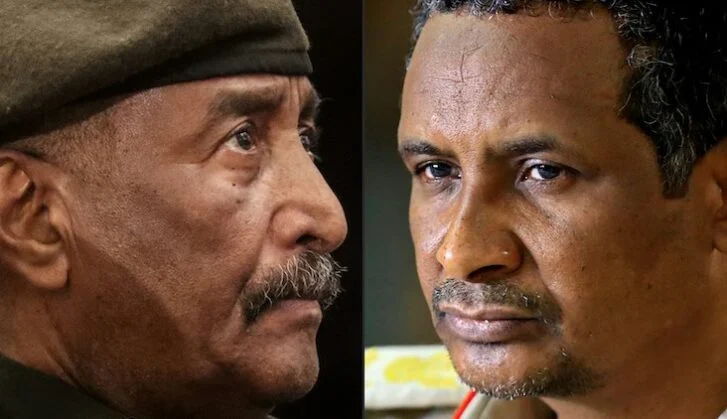The top United Nations (UN) envoy for Sudan said on Tuesday that the military leaders of the warring parties in Sudan are not ready for a complete ceasefire.
“Both leaders (of the Sudanese Armed Forces and the Rapid Support Forces) have not been able to fully commit to a complete ceasefire or implement one.
“The two generals continue trading accusations and issuing competing claims of control over key installations,” said Volker Perthes, the UN secretary-general’s special representative and head of the UN Integrated Transition Assistance Mission in Sudan.
There is yet no unequivocal sign that either is ready to seriously negotiate, suggesting that both think that securing a military victory over the other is possible, he said.
“This is a miscalculation. As fighting continues, law and order will further break down throughout the country, and command and control will dissipate.
“Sudan could become increasingly fragmented, which would have a devastating impact on the region,” he warned. And even if one side wins, Sudan will lose, said Perthes.
A 72-hour ceasefire, brokered by the United States on Monday, seems to be holding in some parts of Sudan so far. However, there have been reports of fighting and movement of troops.
The Sudanese Armed Forces and the Rapid Support Forces have accused each other of violating the ceasefire, he said via a video link from Port Sudan on the Red Sea, where nearly 1,200 people, including 744 UN staff and their dependents, international nongovernmental organisation staff and their dependents, and diplomatic staff from several embassies, were relocated from the capital city of Khartoum on Monday.
In Khartoum, fighting around the Republican Palace, Khartoum international airport, Sudanese Armed Forces headquarters, Rapid Support Forces bases, and other strategic locations have largely continued or in some cases intensified.
Airstrikes and heavy shelling have also continued, particularly in Bahri and Omdurman on the outskirts of Khartoum. Khartoum airport is reportedly now operational, but its aprons are damaged, he said.
Residential areas near installations of the two military factions have come under persistent attacks. Homes, shops, schools, water and electricity installations, mosques, hospitals, and other health facilities have been damaged or destroyed. —Xinhua

